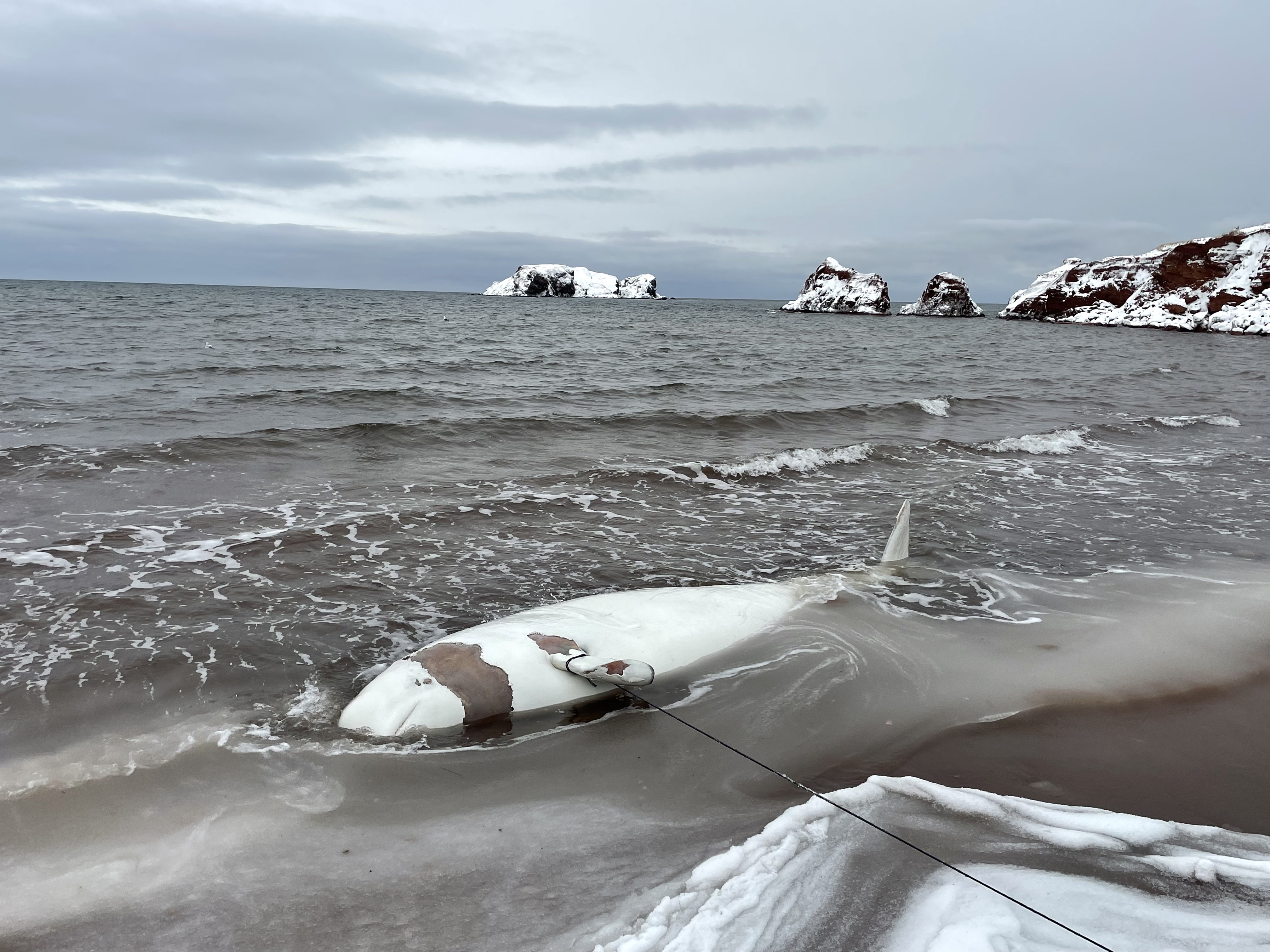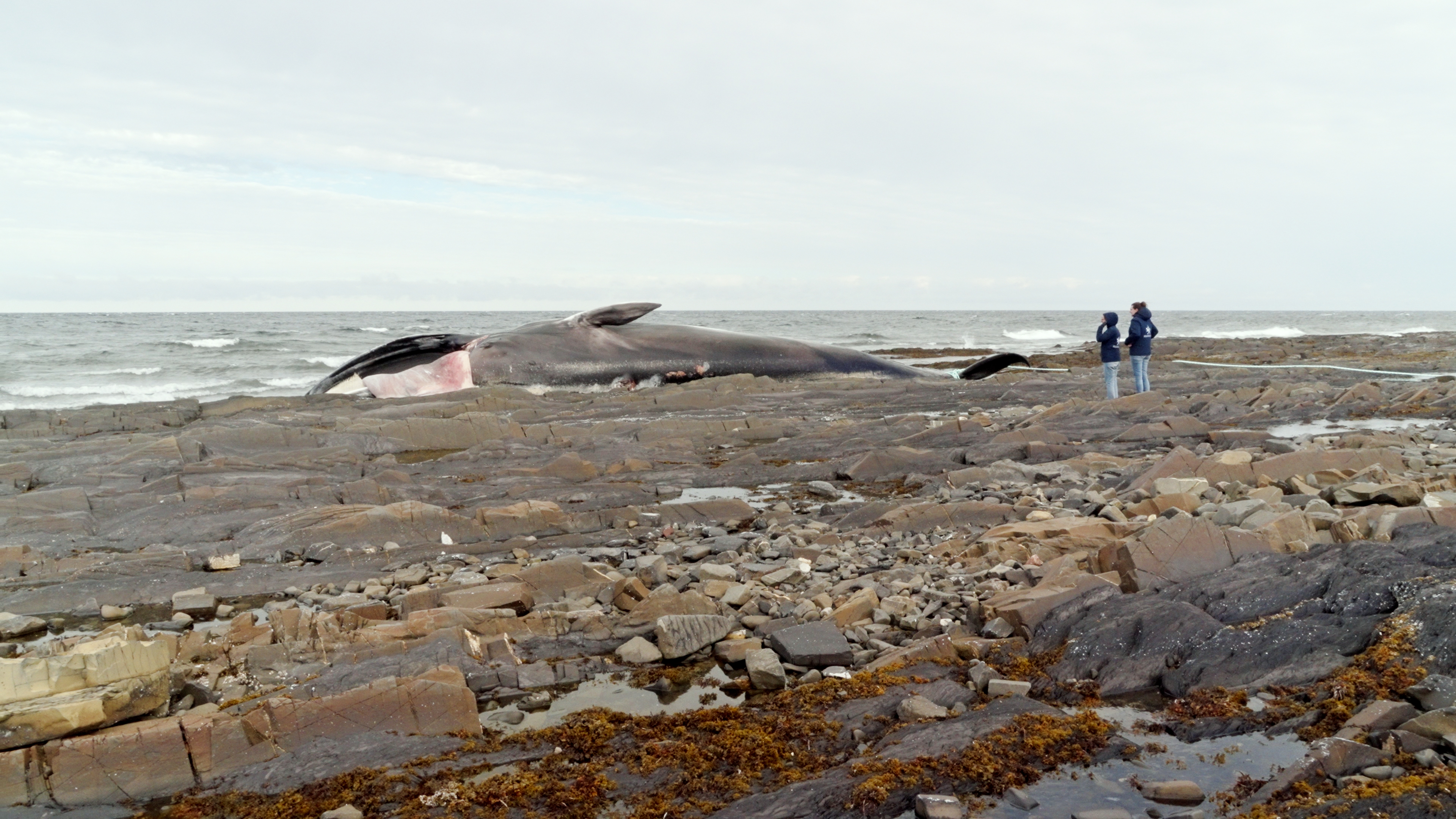The Government of Canada announced in a press release that it had discovered two new carcasses offshore, near the Acadian Peninsula in New Brunswick and west of the Magdalen Islands in Quebec. There are now four right whale carcasses discovered in Canadian waters in 2019. The necropsy of the right whale known as Punctuation began on the morning of June 25. The carcass was first discovered on June 20, meaning it may already be in poor condition. Due to unfavourable weather conditions, only yesterday could the animal finally be towed to shore. The carcass is now in Petit-Étang, Nova Scotia.
Over the course of her life spanning nearly four decades, Punctuation gave birth to at least eight calves, the first being observed in 1986 and the most recent in 2016. The loss of a female of breeding age can hamper the recovery of an endangered species. During her lifetime, Punctuation got herself entangled no fewer than five times and was struck by a ship at least twice. Punctuation was seen in the Mingan Island sector in 2017.
Ironically, the discovery of this female’s carcass occurred on the same day as the publication of a study on the causes of North Atlantic right whale mortalities. Published in the scientific journal Diseases of Aquatic Organisms, the article confirms that entanglements and collisions are the most common causes of death for this species (88%), far ahead of natural causes. Researchers have examined the carcasses of 70 right whales found between 2003 and 2018, of which they were able to confirm the causes of death for 43 individuals. Of these, 22 died as a result of entanglement and 16 due to collisions with a ship. “The good news however, is that these mortalities are preventable if targeted and aggressive mitigation measures are enacted immediately by both the United States and Canada,” states Dr. Sarah Sharp, veterinarian and pathologist for the International Fund for Animal Welfare (IFAW).
Reduced speeds for ships, dynamic closure zones or rerouted shipping lanes, and the use of rope-less fishing gear are all avenues of protection that can be or have already been put into place.
To learn more
Right Whale: What is happening in 2019 (Whales Online)
Mortality study: Sharp, S.M., W.A. McLellan, D.S. Rotstein, A.M. Costidis et al. (2019) Gross and histopathologic diagnoses from North Atlantic right whale Eubalaena glacialis mortalities between 2003 and 2018. Dis Aquat Org 135:1-31. https://doi.org/10.3354/dao03376





